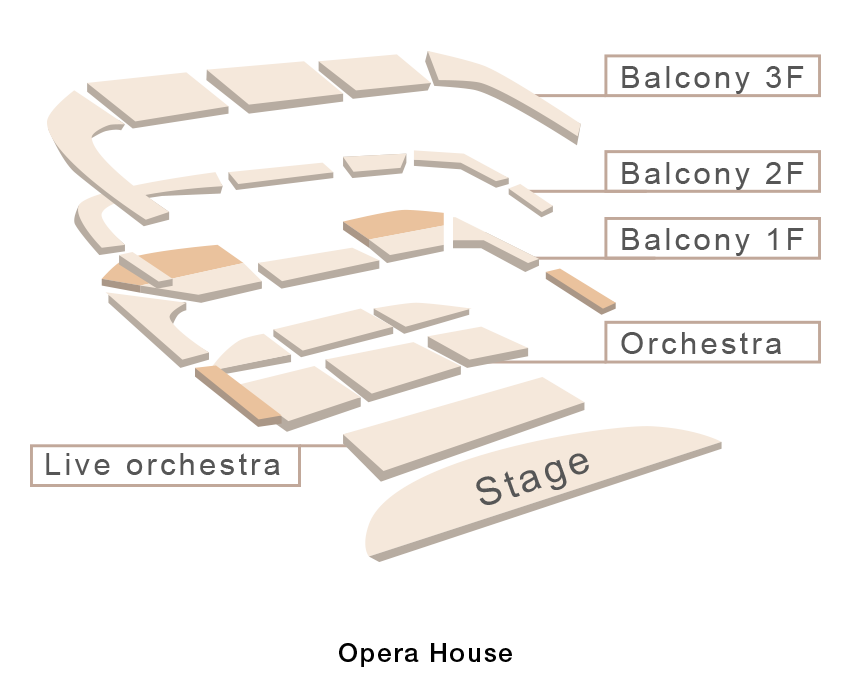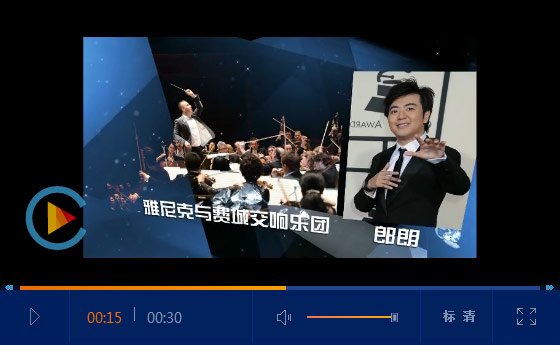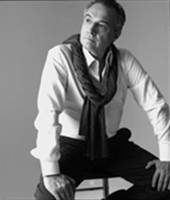
Giancarlo del Monaco Director
Giancarlo del Monaco, a world renowned stage director known also as the son of the famous tenor Mario del Monaco, has directed operas on the world's most prestigious stages, from Milano (Teatro alla Scala), ??New York (The Metropolitan Opera) and Buenos Aires to Beijing with his newest 2013 production of Verdi′s
Otello. Always focused on every detail, his work is ravishing, powerful and insightful.
Growing up with his ingenious father who performed with the greatest conductors of all time (Herbert von Karajan, Tullio Serafin,Dimitri Mitropoulos, Carlo Maria Giulini, Victor de Sabata ) as well as the most magnificent opera singers of the twentieth century (Maria Callas, Renata Tebaldi), Giancarlo was surrounded by music from an early age and developed a special sense for music and the art of stage.
In 1965 he made his debut as a stage director in Siracusa, Italy with Samson et Dalila starring his father. The next few years he spent working in Germany as assistant director of Wieland Wagner, Günther Rennert and Walter Felsenstein, then from 1968 to 1970 Giancarlo worked as the Rudolf Gamsjager′s personal assistant while he was artistic manager at the Vienna Staatsoper. From 1970 to 1973, as principal stage director in Ulm he staged about fifteen productions.
In 1975, along with his father, he founded the Festival of Montepulciano of which he became the artistic director. Five years later he was appointed general manager of the Kassel Staatstheater. The following years, he performed the same duty for the Macerata Festival (1986-1989), Bonn Oper der Bundesstadt (1992-1997) and the Opera of Nice (1997-2001).During his career as general manager, Giancarlo became one of the most important and most desired stage directors of his generation.
Giancarlo del Monaco′s repertoire consists of over one hundred operas, staged in their original language thanks to his knowlege of five languages which he speaks fluently. He has staged productions in Barcelona, Beijing, Berlin, Munich (Bayerische Staatsoper) Bologna, Bregenzer Festspiele, Buenos Aires, Catania, Hamburg, Los Angeles, Madrid, Milano (La Scala), Venice (Opera Fenice), Torino, Athens, Montpellier, Napoli, The Metropolitan Opera of New York, Festival d'Orange, Paris, Rome, Savonlinna, Stuttgart, Tel Aviv, Washington, Vienna, Zurich, etc…and has collaborated with the most important conductors (Riccardo Chailly, Wolfgang Sawallisch, George Pretre, Giuseppe Sinopoli) and stage designers of the operatic world creating some of the most breathtaking works ever seen on stage .
In 1991, he was invited to stage La Fanciulla del West at the Metropolitan Opera. This was followed by Stiffelio, Madama Butterfly, Simon Boccanegra and La Forza del destino (for which he was awarded by the American Institute of Verdi Studies). All of these Metropolitan productions were filmed and internationally broadcasted and are still part of the Metropolitan repertoire today.
Giancarlo del Monaco has received numerous awards, such as the Viotti d'Oro, the Bundesverdienskreutz 1. Klasse from the President of the Federal Republic of Germany, the Cavaliere Ufficiale della Repubblica, the Commendatore dell'Ordine al Merito della Repubblica Italiana, the Brasilian Ordem Nacional o Cruzeiro do Sul for the staging of the Brazilian work Il Guarany by Carlos Gomez (1994) in Bonn with Placido Domingo (with whom he shares a thirty year history of professional
cooperation) as well as an award for the recording of this piece with the Bonn Opera for Sony Classics. Giancarlo received the title Honorary Doctor of Cultural Arts of Palm Beach Community College, the title Chevalier des Arts et des Lettres from the French Minister for Culture, the Premio Illica (1998) for his achievements as director, the title Citoyen d'Honneur de la Ville de Montpellier and the Aigle de Cristal de la Ville de Nice (2001, France), the Spanish Lyric Award Premios Liricos Teatro Campoamor (2008), for the production Cavalleria Rusticana i and I Pagliacci at the Teatro Real, Madrid.
Several television productions about Giancarlo del Monaco have been filmed, including a ninty minute program on German television as well as a recent French television portrait. Many of his productions have been shown as Worldvision and Eurovision broadcasts.
From 2009 to 2011, he was the artistic director of the Tenerife Opera Festival. Throughout those years, and further into 2012, Giancarlo′s works continue to appear on the scenes of great theatres. Only some of them are Simon Boccanegra, Turandot, Il Trovatore and Roberto Devereux in Zürich, Eugene Onegin in Düsseldorf, Manon Lescaut in Leipzig, Andrea Chenier in Paris, La Traviata, and Il barbiere di Sivigla in Helsinki, Tosca and Der fliegende Hollander in Beijing, Don Carlos in Bilbao, La vida breve in Valencia, Carmen in Tel Aviv and at the Opera Festival at Masada, Manon Lescaut in Athens.
In 2013 Tosca in Lausanne, L′elisir d′amore in Helsinki along with a magnificent production of Otello in NCPA Beijing and L′Italiana in Algeri also in NCPA Beijing
Next year we await Manon Lescaut in Leipzig, Louisa Miller in Lausanne and Roberto Devereux in Zürich, Andrea Chenier in Florence, Cavalleria Rusticana and I Pagliacci at NCPA Beijing and in 2015 Otello in San Paolo, Brasil. Other productions are in preparation.
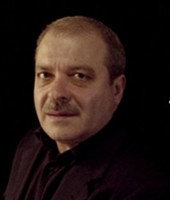
William Orlandi Set/Costume Design
After studying at the Academy of Belle Arti of Brera in Milan, William Orlandi designed sets and costumes for
Il Trovatore directed by Alberto Fassini at the Theater San Carlo in Naples,
Don Carlos, Don Giovanni directed by Lorenzo Mariani in Parma and numerous other operettas. He worked with Alberto Fassini in various operas, such as
Romeo et Juliette in Palermo,
Il Trovatore and
Werther at the New National Theater in Tokyo and
Norma at the Regal Theater in Turin.
Since 1987 he has worked regularly with Gilbert Deflo, Liebermann's
La Foret at the Grand Theater Geneva is the beginning of this collaboration, followed by
Aida,
The Coronation of Poppea,
Carmen etc. And in the 2005-2006 season a new version of
L'amour des trois oranges for the Opera Bastille in Paris.
His design also can be seen in
Cavalleria Rusticana by Mascagni, Massenet's
Therese,
Rigoletto by Verdi and
La Gioconda by Ponchielli in 2002 and 2003 seasons at Hopernhaus Zurich and
Cavalleria Rusticana,
Pagliacci for Arena of Verona in 2006 season.
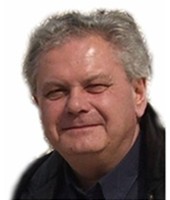
Vinicio Cheli Lighting Design
Vinicio Cheli was the lighting designer for NCPA's production of
Tosca in May 2011,
Der Fliegende Hollander in April 2012 and U
n Ballo in Maschera in May 2012. From 1974 to 1979, Vinicio Cheli works at the 'Maggio Musicale Fiorentino' involved in all productions. Since 1979 he joined the 'Piccolo Teatro' of Milan and became the light collaborator of Giorgio Strehler , he making the entire production of Piccolo until 1989. Since 1987, for four years, he worked with the 'Rossini Opera Festival' to produce shows with several directors.
At the same time since 1989 he worked at the Salzburg Festival, Theatre Champs-Elysees, Chalet Theatre in Paris with the set design by Pier Luigi Pizzi, then respondeed to the La Scala in Milan. Recollaborated some years with the Teatro La Fenice in Venice.
The 90s of the last century saw himwork in the Opera Bastille, National Theatre of Prague,Festival of Aix en Provance, Ravenna Festival, the Opera of Monte Carlo, Opera of Geneva, Maggio Musical Fiorentino, Baroque Festival of Versailles, Opera Garnier in Paris, Easter Festival in Salzburg, Teatro Liceu in Barcelona, Atticus Theater in Athens, Ginza Saison Theater in Tokyo, Theatre of the axes of Brussels, Amsterdam Opera, Teatro Comunale of Bologna, Teatro dell'Opera in Rome, Opera of Toulouse, National Theatre of Catalunya in Barcelona,Teatro Real Madrid, Metropolitain in New York, and collaborated with P.L.Pizzi,Ezio, Frigerio, Hugo de Ana, KM Gruber, Henning Brockaus, Claudio Abbado, Riccardo Muti, to name just a few.
In the new miennium, Vinicio Cheli continued to expand his collaboration with Ezio Frigerio, Hugo de Ana, F. Zeffirelli, V. Gergiev, Claudio Abbado, Nicola Joel, Quirino Conti, Mario Gas, in productions covering a vast realm of the opera repertoire.
In 2010, he set up La donna del lago of Rossini direqued by Luis Pasqual with scenes by Ezio Frigerio and costumes by Franca Squarciapino; Boris Godunojv directed by Andrei Konchalovsky
In the beginning of 2011, he worked in Senso a new opera directed scenes and costumes by Hugo De Ana. July 2011 'Medea' directed by Theodorakis in Syros Festival of the Aegean. In November of 2011, he worked in 'The sleeping beauty', first ballet of reopening of Bolshoi Theater. Vinicio Cheli also taught theatrical lighting at the New Academy of Fine Arts in Milan and at the Professional School of La Scala.
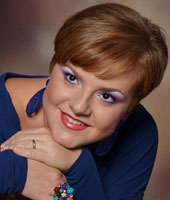
Silvia Beltrami as Isabella
Born in Bologna, she studied at the Conservatorio Arrigo Boito in Parma and she made her debut as Hermia in Brittens
A Midsummer Night′S Dream. In 2004 she won the As.Li.Co Competition in Como and she could debut
Charlotte/WERTHER in the theaters of Como, Ravenna, Brescia and Trento.
2005 she took part at the Accademia Rossiniana directed by Alberto Zedda and debuted Marchesa Melibea/Il Viaggio A Reims. It follows Clotilde in a new production of Norma in Piacenza, Ferrara and Modena with Fondazione Arturo Toscanini. Furthermore she sung Charlotte/Werther at Petruzzelli in Bari and Zita/Gianni Schicchi with the As.Li.Co. In 2006 she started the opera studio of Teatro Comunale Bologna: there she interpreted Suzy/Lolette La Rondine under Josè Cura, Pippo/Gazza Ladra under Michele Mariotti and Suzuki/Madama Butterfly.
2009 she debuted at the Teatro Municipale Piacenza the part Marchesa Melibea in Il Viaggio A Reims produced by Rosetta Cucchi and she debuted the title part in a concert version of Carmen in Parma.
Highlights of the last seasons include Melibea/Il Viaggio A Reims at Teatro Real in Madrid with Emilio Sagi and at Teatro Piacenza, Mercedes/Carmen and Orfeo of Monteverdi in Modena, Reggio Emilia and Ferrara, Ismene/Siege De Corinthe and Carlotta/ADELINA at Rossini Festival Wildbad, Incoronazione Di Poppea in Oviedo and Teatro Arriaga Bilbao, the debut of McLean/Susannah in Bilbao and Geltrude/Il Noce Di Benevento in Wildbad.
Recently she debuted Isabella/L`Italiana In Algeri at Teatro Campoamor in Oviedo, Cleofe/La Risurrezione of Handel in Berlin and at Festspiele Halle, Amneris/Aida at the Teatro Filarmonico Verona, Flora/La Traviata at Teatro Regio Torino and Quickly/Falstaff at the Opera Graz.
Future projects include Isabella/L`Italiana In Algeri in a new production at the National Centre for the Performing Arts in Bejing, Maddalena/Rigoletto and Zita/Gianni Schicchi at Teatro Regio Torino, as well as Gianni Schicchi at Teatro Regio in Parma.

Wang Hongyao as Isabella
Wang Hongyao has sang roles of many operas presented by NCPA, including Cherubino in
Le Nozze di Figaro, Nicklausse and La Muse in
Les Contes d’Hoffmann, Mercedes in
Carmen, Angelina in
Cinderella, Rosina in
Il Barbiere di Siviglia, and Prince Orlofsky in
Die Fledermaus.
As a student of Professor Guo Shuzhen, she is now a young singing teacher of Xinghai Conservatory of Music. She once won the outstanding professional singer award in the National Youth TV Vocal Music Contest (Liaoning area), the first prize in the group of professional candidates of National Youth TV Vocal Music Contest (Shanghai area), the first prize and new promising singer award in the 5th Taipei Worldwide Chinese Vocal Music Contest, and the third place in the 4th China (Ningbo) International Vocal Music Contest.
She has appeared in the performances and tours of many operas such as Carmen, La Clemenza Di Tito, La Traviata, Die ZauberFlote, and so on. She once sang Giuseppe Verdi's Messa di Requiem in the Hong Kong City Hall together with the Hong Kong Oratorio Society. She also sang Handel's cantata Messiah during arts exchanges activities with Hong Kong Baptist University. Her singing of religious works in the Macau Christmas Concert conducted by Yip Wing-sie received wide recognition. She also had great performances in the International Music Week celebrating the 250th Anniversary of Mozart's Birth, Beijing Modern Music Festival, and more other events.
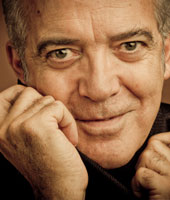
Enzo Capuano as Mustafà
Enzo Capuano was born in Catanzaro. Graduated in Industrial Chemistry, in 1980 he enrolled at the 'Giuseppe Verdi' Conservatory in Milan where he graduated first in electronic music and then, in 1985, in singing. After 1986, he studied with the soprano, Maria Luisa Cioni. Since then, he has sung at the Rossini Opera Festival at the La Scala theatre, Bordeaux, Bologna, Firenze, Toulon, Montpellier, Venezia, Parma, Palermo, Genova, Roma, Napoli, Bilbao, Siviglia, Toronto, Berlin, Hamburg, Stuttgart, Torino, Trieste, Toulouse, Innsbruck, Montecarlo, Praga and Budapest.
Enzo Capuano has taken part in audio and video recordings of Les Vêpres siciliennes, La Traviata and Lodoiska with Riccardo Muti and of La Gazza Ladra with Luigi Gelmetti, Npzze Istriane with Severini, Stabat Mater di Dvorak with Kovacev, Manon Lesacaut with S. Mercurio La Stellidaura vendicante with A. De Marchi, Andrea Chenier, La Sonnambula with m° Ferro, La cenerentola .
His future engagement include Cenerentola in Salzburg with Cecilia Bartoli, Barbiere di Siviglia in Dresden, and Cenerentola in Hamburg.
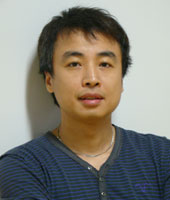
Mei Jie as Mustafà
Playing Alidoro, philosopher and the Prince's former tutor, Jie Mei was Count Monterone in NCPA's production of
Rigoletto. At the Central Conservatory of Music he studied under the guidance of Prof. Li Xinchang, famous singer and educator of vocal music. Then he went to Germany and furthered his vocal study with renowned baritone Wolfgang Brendel and studied Lied with Helmut Deutsch.
Since 2006 he became solo singer in Theater Ulm and has sung many important roles such as Figaro from Le nozze di Figaro, Sarastro from The Magic Flute, Banco from Macbeth, etc., which brought him critical acclaim in German as well as opera performing experience. He has also been invited to sing in concerts and operas around Europe.
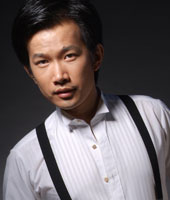
Shi Yijie as Lindoro
After having been the revelation of the 2008 Rossini Opera Festival of Pesaro, singing as Cavalier Belfiore in
Il viaggio a Reims, Shi Yijie has already had tremendous success singing at internationally renowned venues such as Accademia Nazionale di Santa Cecilia di Roma, Maggio Musicale Fiorentino di Firenze, Teatro San Carlo di Napoli, Deutsche Oper of Berlin, Opéra de Nancy, Théatre du Capitole de Toulouse, Opéra de Lausanne, Teatro La Fenice di Venezia, Teatro Comunale di Bologna, Festival Mozart de la Coru?a, Teatro Arriaga de Bilbao and De Vlaamse Opera of Antwerp, working with such conductors as Roberto Abbado, Kent Nagano and Alberto Zedda. His recent engagements have included a series of successfull role debuts: as Arturo Talbo in
I Puritani in Jesi, as Tamino in
Die Zauberflote in Antwerp and as Duca di Montava in Verdi’s
Rigoletto in Shangai. He also returned to Rossini Festival of Pesaro to perform as Lindoro in
L'italiana in Algeri and holds a successfull Belcanto Recital. Among his future plans are
L’elisir d’amore (Nemorino) at the Teatro La Fenice di Venezia,
L'italiana in Algeri at Bejing NCPA,
La Favorite (Fernand) at the Théatre du Capitole de Toulouse and in Graz,
Tancredi (Argirio) and
Il turco in Italia (Narciso) at Opéra de Lausanne,
Il turco in Italia (Narciso) at Teatro Municipal de Santiago, Rossini's
Armida (Rinaldo) in Antwerp and Gent.
Born in Shanghai, he began his vocal studies in his native town and graduated with top score at the Toho College of Music in Tokyo (Japan).
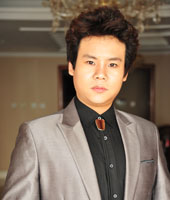
Yang Yang as Lindoro
Yang Yang performed in NCPA's productions of
La Cenerentola, Gianni Schicchi, Il Barbiere di Siviglia and
Tea. He had followed with Chao Haojian and Jin Tielin to learn singing.
Yang Yang has won numerous awards, including: First Prize of Pesaro International Singing Competition, First Prize of Mediterranean International Singing Competition, First Prize of Foligno International Singing Competition, First Prize for Tenor of the Italy Don Giovanni International Opera Competition held by UNESCO, the 12th Splendor Award for Performance, Gold Prize of the 4th China Golden Bell Singing Competition, Gold Prize of National Audience's Favorite Singer organized by the Ministry of Radio, Film, and Television, Silver Prize of the 11th National TV Contest of Young Singers, and Silver Prize of the 7th National Singing Competition organized by the Ministry of Culture.
He has participated in opera performances worldwide, including Rossini's La Cenerentola in Croatia, Don Giovanni in Verona, and The Barber of Seville in Korean International Opera Festival. Also, he has worked with numerous theatres and orchestras. He has recorded four DVDs and one CD. He was selected as "top-ten tenors" of CCTV in 2012.
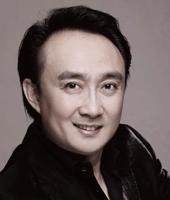
Liu Songhu as Taddeo
Liu Songhu, a tenor and an associate professor of the Academy of Opera, Peking University, had been the resident solo of Nurnberg State Opera and visiting lecturer of Nurnberg Academy of Music. So far, he has starred in over 500 operas, with
The Fall of The House of Usher been elected as the annual 'Best Opera' by the German Ministry of Culture. In addition, he won a series of awards at German 'New Voice' International Voice Competition, Toulouse International Voice Competition and other competitions. In 2007, he, as the first Chinese singer, won the top award at the Germany 'La Voce' International Artistic Songs Competition.
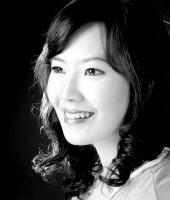
Song Yuanming as Elvira
Song Yuanming, a soprano, obtained the two master degrees of 'Opera and Light Opera' and 'Art Songs and Cantata' in Vienna National University of Music and Performing Arts under the tutelage of Professor Franz Lucasalfsky, obtained the education diploma of 'Outstanding Artist' higher than the songs and sound MA, and graduated from flute major of the Vienna Prayner Academy of Music. She won several awards including the third prize of the youth group on the 18th 'Slovak International Vocal Competition'; the first prize and the award of 'best singer' on the 44th Czech 'Dvorak International Vocal Competition'; the third prize on Vienna 'Mania International Vocal Competition'; and the first prize on 48th'International Vocal Competition in Toulouse, France'. She has performed at the Salzburg International Art and Music Festival and in many renowned venues including Schloss Schonbrunn, Graz Opera and the Music Hall of the Seoul Arts Centre, etc., and has worked with famous orchestras like the Vienna Philharmonic as well as famous conductors including Riccardo Mu, Daniel Barenboim and Valery Gergiev. She has starred operas including
Don Juan, La Boheme, Turandot, Carmen and Die Fledermaus. As commended by media of Vienna, 'Her voice is highly plastic, gentle and powerful, allowing her to be competent for all opera characters ranging from lyric soprano to coloratura soprano.
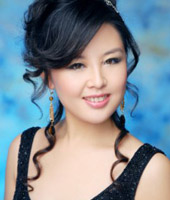
Li Xintong as Elvira
Li Xintong graduated from the Central Conservatory of Music. She got a master's degree in vocal music teaching at the New England Conservatory. She was assistant professor at the New England Conservatory, and well-received by students and the dean of the department.
Li performed in many venues, such as Shanghai Grand Theatre, Forbidden City Concert Hall and NCPA. She has sung in Thunder, Il Tabarro, Carmen, A Midsummer Night's Dream, Turandot, and other more than twenty operas and oratorios.
Li won the second prize in the competition of National Association of Teachers of Singing.
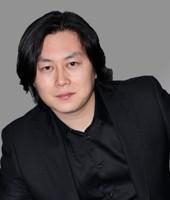
Wang Hexiang as Haly
Playing Dandini, the
valet to the Prince in this opera, Wang Hexiang played Lan Hongshun in the opera
Sister Jiang in NCPA's opening season, Betto di Signa in NCPA's
Gianni Schicchi and Le Dancanre in NCPA's
Carmen.
In 2008 he was admitted to the Department of voice and opera of the Central Conservatory of Music and studied under the famous bass-baritone, Prof. Zhao Dengying.
In 2009 he sang The Song of Utopia and played Figaro in Le nozze di Figaro in the opening night of the first Beijing International Comic Opera Season in 2010. In the same year, he was invited by the Opera Troupe of the PLA General Political Department to join the tour of the opera True Daughter of the Party in Jiangsu, Zhejiang and Anhui Province in commemoration of the 90th anniversary of the founding of the CPC, in which he played Seventh Uncle.
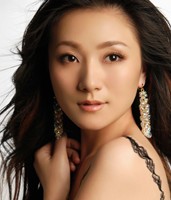
Zhang Zhuo as Zulma
Zhang Zhuo was Mercedes in NCPA's production of
Carmen, La Ciesca in
Gianni Schicchi, Mai Shu in large scale
Chinese original opera The Chinese Orphan, Bai Liping in Chinese original opera
The Song of Youth, Alisa in
Lucia di Lammermoor, Papagena in
The Magic Flute, and so on. She is now a solo singer of China Opera and Dance Drama Company.
"Zhang Zhuo is an artist who sings from the heart and her performance is touching and charming," said by Teresa Berganza, famous Spanish vocalist.
Zhang Zhuo has been winner of many national and international prizes and awards, including the Golden Bell Award and the Best Lied Performance Award of the Neue Stimmen International Singing Competition in Germany. She was invited to the summer festival of YLE Finland and was claimed a "rare artist of China" in their coverage. In August 2011, with the appointment of the Central Committee of China Communist Youth League, she went to Japan for a friendly visit with the Chinese youth delegation and received public attention and acclaim.
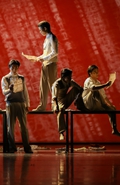 Repertoire
Repertoire
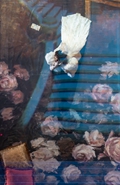 Films
Films
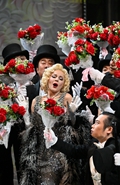 Videos
Videos
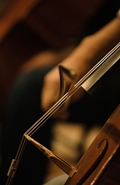 Podcast
Podcast
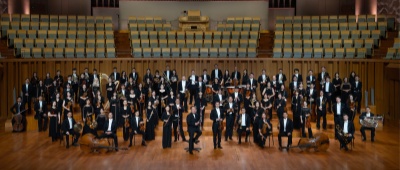 China NCPA Orchestra
China NCPA Orchestra
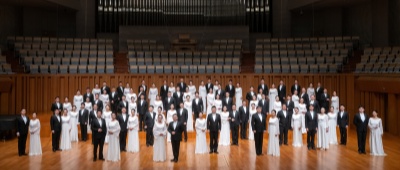 China NCPA Chorus
China NCPA Chorus
 NCPA Resident Singers
NCPA Resident Singers
 NCPA Drama Ensemble
NCPA Drama Ensemble
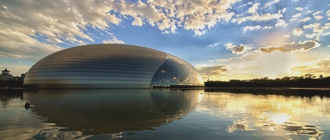 Buildings
Exhibitions
Buildings
Exhibitions
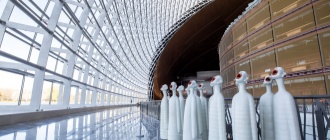 Opening Hours
Services
Opening Hours
Services
 Western Cuisine
NCPA Café
Arts Gifts
Western Cuisine
NCPA Café
Arts Gifts








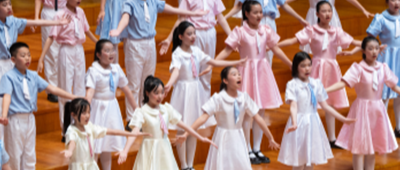
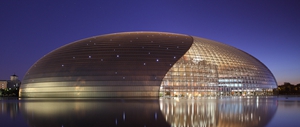
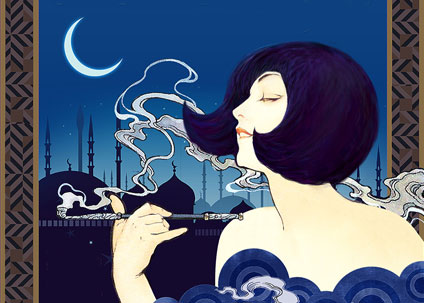


















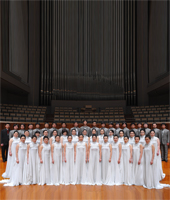
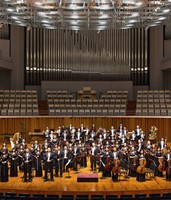
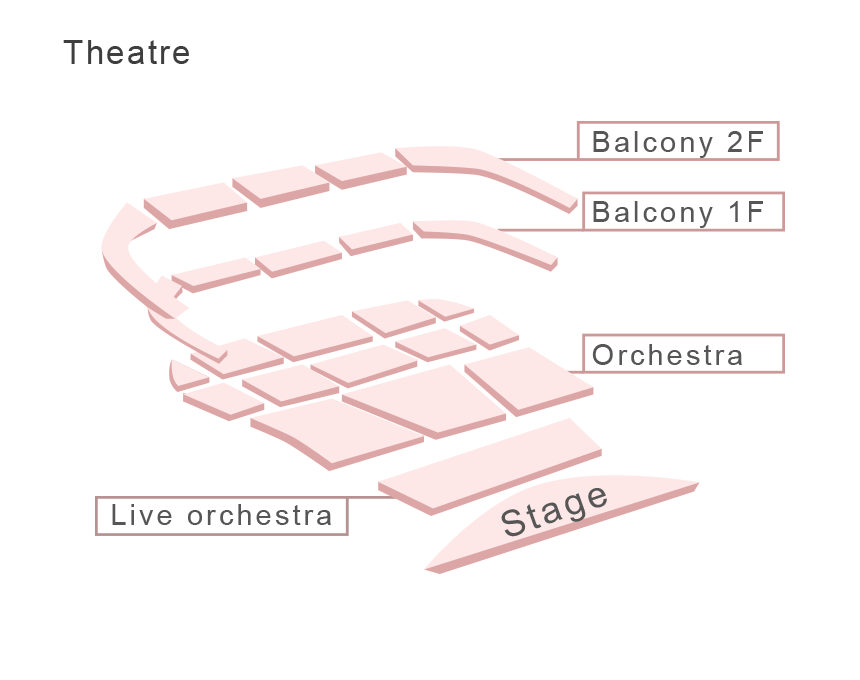 戏剧场
戏剧场
 小剧场
小剧场
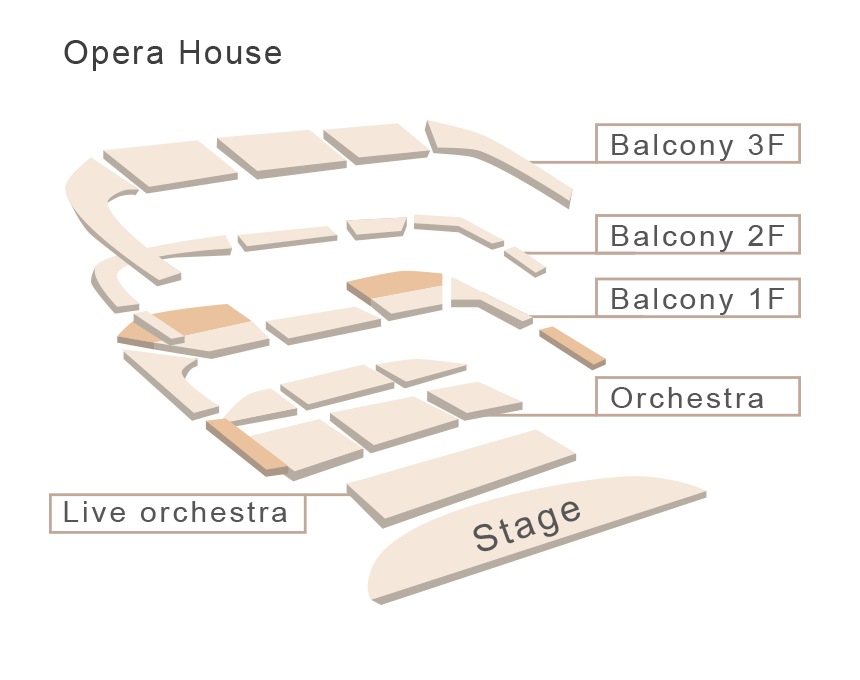 歌剧院
歌剧院
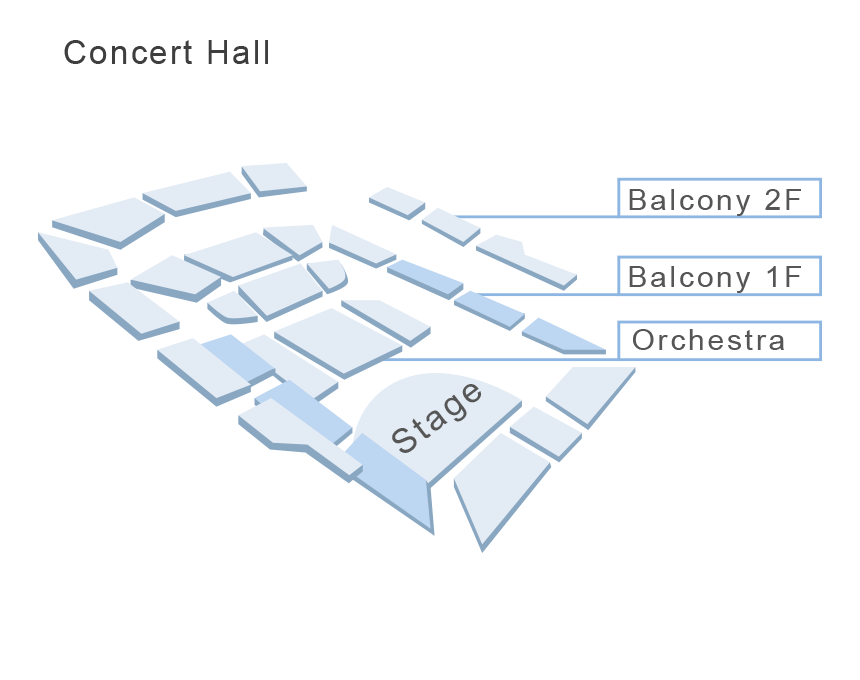 音乐厅
音乐厅











